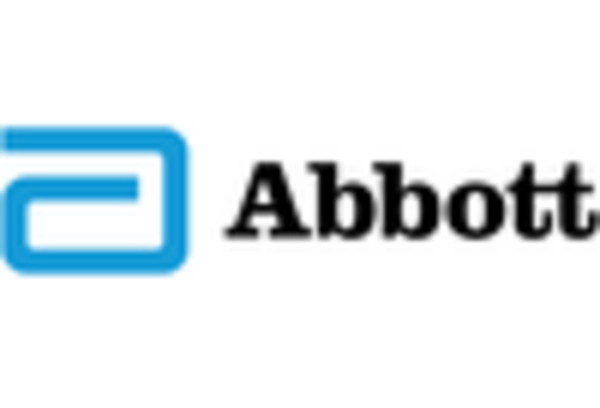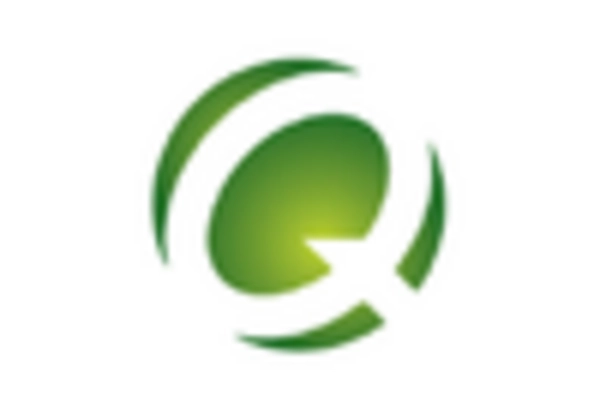Rising Substance Abuse Rates
The drug abuse testing market is growing due to the alarming rise in substance abuse rates across the United States. According to the National Institute on Drug Abuse, approximately 21 million Americans suffer from substance use disorders. This increasing prevalence necessitates the implementation of effective drug testing solutions in various sectors, including healthcare, law enforcement, and workplaces. The demand for accurate and timely testing methods is crucial for addressing this public health crisis. As organizations seek to mitigate risks associated with substance abuse, the drug abuse-testing market is likely to expand, driven by the need for reliable testing protocols and technologies. Furthermore, the market is projected to reach a valuation of $6 billion by 2027, indicating a robust growth trajectory fueled by rising awareness and the need for preventive measures.
Workplace Drug Testing Policies
Stringent workplace drug testing policies significantly influence the drug abuse testing market. Many employers are increasingly adopting drug testing as a standard practice to ensure a safe and productive work environment. The Substance Abuse and Mental Health Services Administration (SAMHSA) recommends drug testing for safety-sensitive positions, which has led to a surge in demand for testing services. In 2025, it is estimated that around 60% of employers will implement drug testing programs, reflecting a growing recognition of the importance of maintaining workplace safety. This trend is likely to drive the drug abuse-testing market, as organizations seek to comply with regulations and protect their workforce from the adverse effects of substance abuse.
Increased Awareness of Mental Health
Growing awareness of mental health issues and their correlation with substance abuse also influences the drug abuse testing market. As society becomes more attuned to the importance of mental health, there is a rising demand for comprehensive drug testing solutions that address both physical and psychological aspects of substance use. Organizations are increasingly recognizing the need for integrated approaches that combine drug testing with mental health support services. This trend is likely to drive the drug abuse-testing market, as stakeholders seek to implement holistic strategies for addressing substance abuse. In 2025, it is anticipated that mental health initiatives will lead to a 15% increase in the adoption of drug testing programs across various sectors, further propelling market growth.
Legislative Support for Drug Testing
Legislative support for drug testing initiatives at both state and federal levels positively impacts the drug abuse testing market. Recent laws and regulations aimed at combating substance abuse have encouraged organizations to adopt drug testing as a preventive measure. For example, several states have enacted laws that promote drug testing in schools and workplaces, thereby increasing the demand for testing services. This legislative backing not only legitimizes drug testing practices but also fosters a culture of accountability and safety. As more states implement supportive policies, the drug abuse-testing market is likely to expand, with an expected growth rate of 10% annually over the next five years. This trend underscores the critical role of legislation in shaping the landscape of drug testing.
Technological Innovations in Testing Methods
Technological innovations are enhancing the accuracy and efficiency of drug abuse testing methods. Advances in testing technologies, such as rapid testing kits and point-of-care testing devices, are transforming the landscape of drug testing. These innovations allow for quicker results and increased accessibility, making it easier for organizations to implement testing protocols. For instance, the introduction of oral fluid testing has gained traction due to its non-invasive nature and ability to detect recent drug use. As these technologies continue to evolve, the drug abuse-testing market is expected to grow, with a projected CAGR of 8% from 2025 to 2030. This growth is indicative of the market's adaptability to emerging technologies and the increasing demand for reliable testing solutions.
















